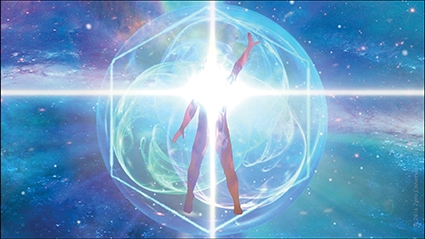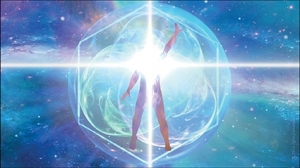What is Destiny?
That is destiny? Nearly everyone asks this at some point in their lives. Some believe that it exists and everything is determined as soon as we are born, while others say that they are the own authors of their lives. GEORGIA TODAY met with Mikheil Khalvashi, philosopher, to discuss the issue that scientists and writers have been discussing for centuries.
How can we define destiny?
In answering, it’s impossible not to remember the history of mythology, religion, philosophy and science. This issue has been discussed since antiquity. According to Greek mythology, the fate of an individual, as well as of the whole universe, is predetermined: it cannot be altered even by the gods, as they obey it just like others. The Roman philosopher Seneca said: “Destiny takes along its path obedient ones, and drags along those who are stubborn.” This standpoint is well expressed in the myth Oedipus where the king was told that his own son would kill him. Later, his son was told that he would kill a Father and marry a Mother. Both father and son try to escape from that fate, but in vain. When Oedipus, the king’s son, is born, the ruler left him exposed on the mountain. One shepherd took pity of the baby and gave him to another shepherd. Laius’s son was adopted by Polybus, King of Corinth. When Oedipus learnt that he was doomed to kill his father and marry his mother, he left Corinth for Thebes, his real homeland. There, he met Laius, who provoked a quarrel, and killed his biological father without knowing about it. Thebes was found plagued by the Sphinx, whom he kills and as a winner, marries the queen, his real mother. According to the Ancient Greeks, the universe is a cosmos where order reigns, where there is inevitability and there is no room for contingency.
What does philosophy tell us about fate?
The religious point of view is based on the sacred sources that exist in the field of idealistic philosophy and theology. However, there is material philosophy that denies God. However, even materialism, like mythology and religion, believes that the universe is ruled by some regularity. Moreover, it denies any free choice as well as eventuality. It says that everything has a symmetry. This stance is called determinism.
How should we understand freedom under such circumstances?
According to materialism and science, freedom is a cognizable inevitability and the actions based on it. For instance: a student ought to study. If they do not realize this regularity, the process of learning will be a compulsion, non-freedom and torture. Opposite to that, if they realize that studying is a must and set getting an education as the goal, then compulsion will vanish, and they will become free and enjoy the happiness as a result of success achieved in this work. It means that freedom is not something that we want, but something that we must do and that is our requirement as a result of our cognition of this inevitability.
Besides the aforementioned viewpoints, the freedom and destiny of a human being is also defined by the general energetic power, based on the symmetry of happiness and kindness ascertained in the past few years. It means that if the general energetic power, in other words, the spiritual level, of a human being is high, he feels free inside, as well as joy and happiness; is ready to assist others, behaves morally, etc. They are ready because kindness needs more life energy and they possess it in abundance. Kindness is giving our own life energy to others. But if one does not have the relevant power, what will one give?!
Opposite to that, if an individual’s general energetic potential is low, they are spiritually feeble. In such cases, they think they are not free, that they are restricted, miserable, doomed to torture, etc.
Consequently, they basically choose evil over kindness, as they do not have sufficient power for the latter. Therefore, because of this and not accidentally, a wicked person prefers appropriation and dissoluteness to giving and kindness.
Does it necessarily mean that spiritually lowered people are destined to wickedness forever?
Of course, not. It just means that they have fewer possibilities to do kindness compared to kind people. In spite of that, it is inevitable that even such people are doomed to do kindness only if they wish to make their soul fit and to continue existing worthily or face punishment.
This is the symmetry that wicked people do not realize. They do not reckon that they need kindness even more than kind people, because they are more vulnerable to destruction than kind individuals.
If a person is only partially free, where is the absolute freedom which is attained by very few?
This is another issue. Fate in Eastern philosophy and religion is understood similarly to the Western world. The main difference is that there is Samsara in the East, which defines the regularity and destiny of all living beings. According to this theory, destiny depends on a human being’s previous life, karma. It means that if a human being was oriented to obtain wisdom and lived in accordance to the cosmic laws, they will be reborn in better socio-economic, national and family conditions and will have more possibilities to self-development. Eventually, if lucky, they will be able to totally escape from Samsara, which implies the automatic re-settling into another body, by means of becoming a saint or moving to another world, attaining nirvana. This is already absolute freedom. Such people can fully manage their destiny.
When did Europeans learn about this conception?
In ancient times. Socrates, Plato and Pitagora were aware of it. Later, together with Christianity, pagan wisdom was partially forgotten. So, as we see, we are only partly free, however, we can become real creators of our destiny if we make our existence obey moral laws.
Maka Lomadze












